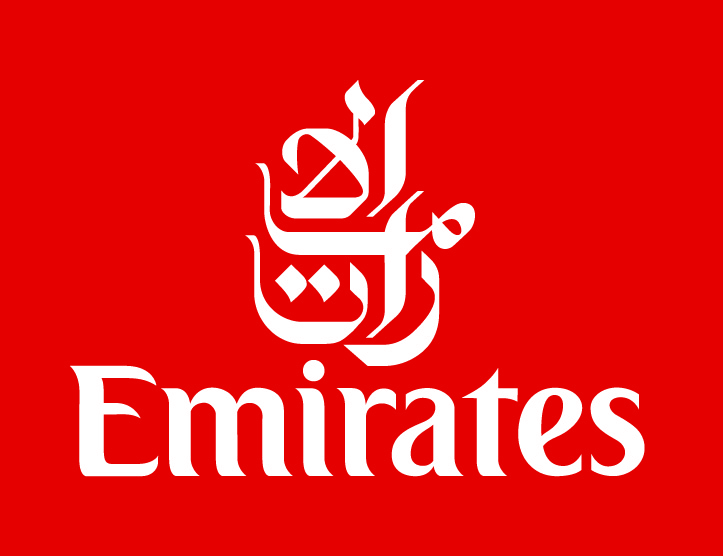IMMIGRATION DEVELOPMENTS IN THE MENA REGION
Date Posted:Wed, 11th Jan 2023

Please visit our dedicated microsite https://www.fragomen.com/about/news/immigration-update-coronavirus for details on worldwide immigration and travel restrictions due to COVID-19 pandemic.
United Arab Emirates
05 December 2022 – Salary Subsidies Increased for Emirati Nationals and Penalties Announced for Violation of Emiratization Programs
The UAE government increased the salary subsidies for Emirati nationals working in the private sector and published a list of administrative penalties for violations related to Emiratization programs.
The UAE government increased the salary subsidies for Emirati nationals working in the private sector and published a list of administrative penalties for violations related to Emiratization programs, including Nafis.
In an effort to integrate Emirati nationals into the labor market, the government is increasing the monthly salary support offered to Emiratis working in the private sector to a maximum of AED 7,000, up from the previous amount of AED 5,000. The exact amount of support depends on the educational level of the employee, and it applies to those with a monthly salary of not more than AED 30,000.
Additionally, Emirati nationals with children will now receive a monthly allowance of AED 600 per child (for a maximum of four children), provided that their monthly salary does not exceed AED 50,000.
Below is a high-level overview of select sanctions provided in the new law.
Companies will be subject to a fine of minimum AED 20,000 and maximum AED 100,000 per worker in the case of false Emiratization or if the employer has filed invalid documents or information to receive salary support from the government or to evade or circumvent Emiratization laws.
If a company takes no action when their Emirati employee has failed to report to work despite being issued a work authorization and after the employer has received salary support from the government, or if the employee does not report to work on a regular basis (as per the contract) or has abandoned work without the employer officially reporting this, the Ministry of Human Resources and Emiratization (MOHRE) will issue a fine of AED 20,000.
In all cases, the salary support from the government will be suspended and the employer will be required to return the subsidies they received earlier. Additionally, the MOHRE may impose more than one sanction in the case of multiple violations. Employers may appeal the decision within 15 days from the date of notification of the sanctions.
Employers in the United Arab Emirates are advised to carefully plan their Emiratization strategies to ensure they are compliant with all applicable nationalization policies. This includes the requirement for increasing the number of Emirati employees in skilled professions by at least 2% by the end of December 2022. Additionally, considering the latest increase in compliance enforcement actions, it is important for employers to understand the mechanisms related to the disbursement of government subsidies for their Emirati workforce and avoid false Emiratization practices.
09 December 2022 – Further Update on Discontinuation of Residence Visa Stamp Endorsement
The United Arab Emirates has initiated the process whereby foreign nationals’ passports are no longer endorsed with a residence visa stamp. This News Flash provides the latest update on the process.
The United Arab Emirates (UAE) has implemented the process whereby foreign nationals’ passports are no longer endorsed with a residence visa stamp. This News Flash provides an update on the process which was previously reported by Fragomen in April.
Effective immediately foreign nationals obtaining a UAE Residence Visa in the Emirate of Dubai will no longer be issued a UAE Residence Visa stamp endorsed in their passport. Instead, foreign nationals will be issued an Emirates Identity card which will serve as their residency document, which falls in line with the rest of the Emirates, who discontinued the endorsement in April.
As the Emirates Identity Card now serves as proof of residency status in the UAE, foreign nationals must hold an original Emirates Identity Card if they travel internationally. It is expected that the electronic version of the residence permit will not be sufficient to enter or depart the UAE.
23 December 2022 - Discontinuation of In-Country Visit Visa Renewal in Effect
Effective immediately, the immigration authorities are discontinuing the process whereby foreign nationals in visitor status can renew their visa in-country without having to exit and re-enter. However, the implementation of this rule across the United Arab Emirates is inconsistent.
Effective immediately, the immigration authorities are discontinuing the process whereby foreign nationals in visitor status can renew their visa in-country. This concession was announced in the United Arab Emirates (UAE) during the COVID-19 pandemic to soften the impact of travel and other immigration restrictions.
As a result of the discontinuation, visitors whose visit visa has expired must exit the UAE and re-enter based on a new immigration authorization.
However, the implementation of this rule across the UAE is inconsistent, with some applicants in the Emirate of Dubai receiving approvals for in-country visitor visa renewals while those in other emirates, including Abu Dhabi and Sharjah, being unable to do so. Additionally, it is not clear if the rule applies to all categories of visitors and in all circumstances.
28 December 2022 - Entry Visa Conditions for Entry for Foreign Residents of GCC Member States
The Federal Authority for Identity, Citizenship, Customs and Port Security has identified conditions that foreign national residents must meet to seek entry into the UAE under an entry visa for residents of the Gulf Cooperation Council (GCC) member states and their dependents and co-travelers.
As per the announcement, the entry visa for residents of GCC member states, for which foreign nationals must apply online, allows stays of up to 30 days with the possibility of a one-time extension for an additional duration of 30 days.
Once the entry visa is issued, the foreign national must meet the following conditions in order to be granted entry to the UAE:
- the applicant's residence permit issued by a GCC member state and their passport must be valid for more than 3 months from the date of the intended entry to the UAE; and
- if applicable, any accompanying dependents and co-travelers must travel with the main applicant.
The legislation supplementing the new federal law regulating the entry and residency of foreign nationals introduced the entry visa for residents of the GCC earlier this year but did not specify the conditions or requirements to obtain the visa.
It is important to note that as per the above-mentioned legislation, the passport or travel document of a foreign national who does not hold a UAE residence permit must normally be valid for at least six months from the date of intended entry, however, the validity may vary for different categories of visitors.
Saudi Arabia
09 December 2022 - Longer Duration of Stay Under Single-Entry Visit Visa and Waiver of Transit Visa Fee Introduced
The government of Saudi Arabia amended its visa policy by extending the maximum allowable duration of stay under all categories of a single-entry visit visa to three months. Additionally, the long-term visit visa for transit is expected to be issued free of charge.
The government of Saudi Arabia amended its visa policy by extending the maximum allowable duration of stay under all categories of a single-entry visit visa to three months. Previously, some single-entry visit visas were issued for a maximum stay of only one month.
Additionally, the long-term visit visa for transit (for up to 96 hours) is expected to be issued free of charge; previously the cost of the visa was SAR 300.
Although the official immigration portals have been updated to reflect these changes, certain nationalities may only apply for a single-entry visit visa with a maximum duration of stay of 30 days, while others can opt for visas with a permissible duration of stay of 14, 30, or 90 days. It is not clear when this policy will be unified for all categories of applicants.
Saudi Arabia continues restructuring its visa system to align with the country’s Vision 2030 and its plans to attract more visitors to the country, with a goal of reaching 100 million tourists by 2030.
12 December 2022 - Saudi Arabia Joins the Hague’s Apostille Convention
On December 7, 2022, Saudi Arabia officially became the 122nd member to accede to the Convention Abolishing the Requirement of Legalization for Foreign Public Documents, commonly referred to as the “Apostille Convention”.
The Kingdom’s participation in the Apostille Convention means that documents, such as education certificates and birth certificates, originating from Saudi Arabia and legalized according to the requirements of this treaty will be accepted in the 121 countries that are currently members without any further authentication requirements. Similarly, documents originating from other member countries will be accepted in Saudi Arabia.
During the implementation of new processes in accordance with the treaty, individuals should expect that temporary delays may occur in Saudi Arabia when obtaining apostilled documents and with acceptance of apostilled documents at Saudi Consular posts in other member countries.
The Apostille Convention was established in 1961 to facilitate the use of public documents abroad. The purpose of the Convention is to abolish the traditional, often lengthy, requirement of legalization with a one-step attestation process through the issuance of a single Apostille certificate by a competent authority.
In 2006, the Hague Conference on Private International Law launched a much welcomed electronic Apostille Program (e-APP) to support the electronic issuance and verification of Apostilles around the world. It is currently unclear if Saudi Arabia will utilize the e-APP in their processing.
This new adopted document legalization procedure will streamline recruitment and immigration processing for employers and foreign nationals in Saudi Arabia by reducing processing times and lowering the cost of document legalization by avoiding additional certification or legalization at an embassy or consulate of the foreign country.
21 December 2022 - Personal Visit Visa Application Opens
The Ministry of Foreign Affairs (MOFA) announced further details related to the personal visit visa, which is issued to foreign nationals at the invitation of a citizen of Saudi Arabia who has no business or familial relation with the applicant.
The visa allows the foreign national to enter Saudi Arabia for the purpose of visiting acquaintances who are Saudi citizens, tourism, participation in cultural events, and for religious purposes (including performing Umrah). The visa is valid for 90 or 365 days, it allows stays of up to 90 days and can be issued for single or multiple entries. Foreign nationals with a personal visit visa can enter Saudi Arabia through land, air, and sea.
The visa application process requires that the inviter (a Saudi national) initiates the process through the MOFA’s visa platform. After doing so, the foreign national applicant must appear at a Saudi consular post or a visa service center abroad for the visa endorsement.
The personal visit visa was introduced in January 2022, but the application process was not open until now.
Bahrain
09 December 2022 - Simplified Procedures Announced for Verifying Academic Qualifications
The Ministry of Education has announced simplified verification procedures for degrees and academic qualifications issued in Bahrain and abroad. Academic verification is a requirement for select professions in the public and private sector during the immigration process.
The academic verification process will not require the involvement of the National Qualifications Assessment Committee or the Higher Education Council in evaluating local and foreign degrees; previously, original documents were submitted manually to the Ministry of Education in Bahrain who would liaise with the committee or council to complete the initial evaluation.
The process will now require holders of degrees obtained abroad in specialized fields such as medical, health, engineering and law to obtain an online Qualification Validation Certificate from companies accredited by the Ministry of Education (MOE), instead of submitting original documents manually to the MOE to process the initial evaluation of the degree. Afterwards, they will submit their educational documentation online to the council overseeing their field in Bahrain to complete the academic verification process. For example, holders of engineering degrees abroad would submit their documents to the Council for Regulating the Practice of Engineering Professions. Full procedural details on the verification process for each specialized field can be found on the Labour Market Regulatory Portal.
Other specialties, including humanities, information technology, management, accounting, general sciences, political science etc., still do not require an academic verification certificate for the purpose of employment. However, employers hiring foreign nationals specialized in these fields are given the option to request for academic verification from an accredited company if the qualification is obtained abroad.
Additionally, academic degrees obtained in Bahrain are exempt from the new verification process. Instead, the educational institute’s official stamp on these degrees attesting to the individual’s completion of the requirements will now be sufficient.
This new verification mechanism will streamline recruitment processing in the public and private sectors by reducing wait times and lowering the cost of processing degrees and academic qualifications attestation services.
Employees with a degree issued overseas should have their degrees verified through the new process as early as possible as specific processing timelines are still unknown.
22 December 2022 - New Labour Registration Program Launched for Select Categories of Foreign Nationals in Irregular Immigration Status
The Labour Market Regulatory Authority has launched a Labour Registration Program which allows foreign nationals whose work permits have expired or have been cancelled to obtain a work authorization to enable them to work on a self-sponsored basis for up to two years. The new scheme is also addressed to holders of a Flexible Work Permit seeking to regularize their status, since the program was discontinued earlier this year. Foreign nationals in visitor status and those with criminal offenses are not eligible to register.
Eligible foreign nationals will receive a work permit card valid for one or two years which will contain their personal information, including the profession they are allowed to practice and health insurance details, among other information. The card allows the holder to exit and re-enter Bahrain multiple times throughout its validity. Registered workers must always carry their work permit card and must regularly update their data at a registration center.
Individuals may register for the program by submitting a Registered Worker Permit Service application with one of the accredited registration centers. The applicant will undergo a medical examination, a biometrics registration, and a brief labour awareness training before their work permit card is issued.
Applicants must have an IBAN number and proof of professional qualifications (where applicable) among other documentary requirements. The government fee for a one-year work permit card and health insurance is BHD 182, and BHD 352 for a two-year permit and insurance. The applicant must also pay a monthly maintenance fee of BHD 15, in addition to a one-time payment of BHD 15 for the extension of residency status, and a deposit of BHD 150 as a guarantee for a return ticket to their home country.
The new scheme aims to further regularize the labour market in Bahrain, especially after the Flexible Work Permit program was discontinued. It also targets irregular migrants while compliance enforcement actions, including immigration and labour inspections, are on the rise. Finally, the program aims to identify illegal practices in the labor market by linking work permits to occupational standards to increase safety in workplaces.
Kuwait
12 December 2022 - Issuance of Family Residence Visas Resumes for Select Applicants
The Ministry of Interior of Kuwait has lifted the suspension on the issuance of family residence visas for children of Kuwaiti residents below the age of five.
The Ministry of Interior has resumed the issuance of family residence visas for children below the age of five, provided that both parents have a valid residency permit in Kuwait and the sponsor meets the minimum monthly salary requirement of KD 500.
The salary requirement will be waived if the visa is for a child below the age of one or if the sponsor’s profession falls under the exempted profession category such as doctor or engineer, among others.
In August 2022, Kuwait’s Ministry of Interior suspended the issuance of family residence visas to develop a new regulatory framework.
Oman
05 December 2022 - Relaxed Entry Conditions Implemented for Residents of Gulf Cooperation Council Countries
The Royal Oman Police has implemented relaxed eligibility requirements for entry to Oman for foreign nationals with a residency status in another Gulf Cooperation Council (GCC) country.
The new rule states that GCC residents of all professions (except housekeepers, students, private drivers, or spouses of residents) can now enter Oman on a visa-on-arrival, or obtain a pre-arranged electronic visa based on their GCC residency status. They must hold a residence permit in another GCC country with a minimum validity of three months, and a passport valid for at least six months from the date of entry.
In addition, they do not have to enter Oman directly from the country that issued their residence permit, but instead, they can enter from anywhere. Previously, only those in select professions (mostly skilled) and those holding a passport issued by a specific country could obtain an electronic visa or a visa-on-arrival based on their GCC residency status.
While the new rule already applies in practice at all ports of entry to Oman, the official e-Visa portal has not been updated yet to reflect the amended requirements.
ABOUT FRAGOMEN
Fragomen is the world’s leading single-focus provider of immigration services and support. Our firm is comprised of law practices and immigration consultancies that work together to support our clients across all regions globally. At Fragomen, we leverage our collective immigration experience to offer clients targeted and trusted solutions that help them achieve their local, regional and worldwide business goals.
Fragomen’s team of dedicated immigration professionals has extensive experience in working with multinational businesses, local employers, start-ups and individual investors. We have a deep understanding of the region and maintain strong professional relationships with immigration authorities. Our MENA immigration team is supported on a global basis by over 3,800 immigration professionals in more than 50 offices worldwide. Together, we provide comprehensive immigration support in over 170 countries.
All we do is immigration, a sole focus that makes a considerable difference. Unlike many other providers, all of our thinking, passion and resources are dedicated to improving the immigration experiences of our clients and their employees. We have the track record, region specific experience and know-how to provide you with a streamlined and compliant immigration solution.
Visit our website www.fragomen.com or contact us at dubaiinfo@fragomen.com to learn more about our company and services.











